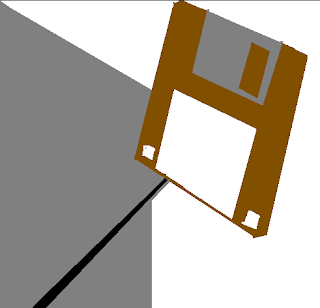Setting up a flat file part 1.
We are going to setup a simple flat file or two dimensional spreadsheet.
What do we want to do with the database
I. Design
Let us look at the data we might want to collect. Of course file names and the data we want to collect.
Simple database
Datafile: datafile Metadata: metadat
Name :
Address :
City :
State :
Zip :
The data we want to collect is described in the meta data file. Sometimes called a data dictionary. With a data dictionary we ca write a generic routine that will handle different data bases without having to write separate code for each one.
5
Name
Address
City
State
Zip
30
30
30
30
5
a
n
c
d
s
Which means we want five data fields known as Name, Address, City, State,
and Zip. The first four data fields can hold up to 30 characters and the last one will only hold four, The next data fields will described by the kind of data it will hold such as n for numeric.
Dummy data:
Your name
1234 Street
Sometown
ST
12345
II. Build
With this database well need to look at the tools we need to create and alter the database. First is the organizer menu. Of course you will have to a database file to work with first.
(A)ppend Add record.
(B)ehold Examine and existing record with the option to alter a record.
(C)hange Alter a record.
(D)elete Remove a record.
III. Sort and extract
You will want to arrange the data in a meaningful order based on one of the database fields so that for a mailing list you might want to arrange the data by the name so that it is easier to look up data. The again you might want to arrange it by zip code to make mail outs easier.
Original list:
Tutuola
Benson
Hargraves
Tartican
New list:
Benson
Hargraves
Tartican
Tutuola
Even then you may only want a portion of the list say only last names that start with T
Newest list
Tartican
Tutuola
IV. Report
Lastly you will want to present the data in a meaningful form as a document for presentation as a printout or even an html page.
Headers
Body > Data
Footers
Notes
Etc
Mail merge is probbly one of the oldest reports.
This is it in a nutshell. Very much oversimplified, but you get the gist of it.
What do we want to do with the database
I. Design
Let us look at the data we might want to collect. Of course file names and the data we want to collect.
Simple database
Datafile: datafile Metadata: metadat
Name :
Address :
City :
State :
Zip :
The data we want to collect is described in the meta data file. Sometimes called a data dictionary. With a data dictionary we ca write a generic routine that will handle different data bases without having to write separate code for each one.
5
Name
Address
City
State
Zip
30
30
30
30
5
a
n
c
d
s
Which means we want five data fields known as Name, Address, City, State,
and Zip. The first four data fields can hold up to 30 characters and the last one will only hold four, The next data fields will described by the kind of data it will hold such as n for numeric.
Dummy data:
Your name
1234 Street
Sometown
ST
12345
II. Build
With this database well need to look at the tools we need to create and alter the database. First is the organizer menu. Of course you will have to a database file to work with first.
(A)ppend Add record.
(B)ehold Examine and existing record with the option to alter a record.
(C)hange Alter a record.
(D)elete Remove a record.
III. Sort and extract
You will want to arrange the data in a meaningful order based on one of the database fields so that for a mailing list you might want to arrange the data by the name so that it is easier to look up data. The again you might want to arrange it by zip code to make mail outs easier.
Original list:
Tutuola
Benson
Hargraves
Tartican
New list:
Benson
Hargraves
Tartican
Tutuola
Even then you may only want a portion of the list say only last names that start with T
Newest list
Tartican
Tutuola
IV. Report
Lastly you will want to present the data in a meaningful form as a document for presentation as a printout or even an html page.
Headers
Body > Data
Footers
Notes
Etc
Mail merge is probbly one of the oldest reports.
This is it in a nutshell. Very much oversimplified, but you get the gist of it.








Comments
Post a Comment